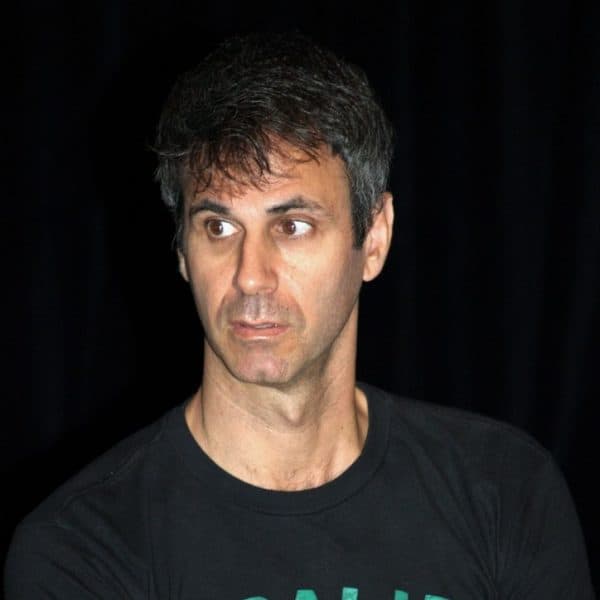Advertisement
Commentary
Heavy On Indignation, Light On Facts: A Guide To The GOP's Impeachment Strategy

After two weeks of breakneck impeachment hearings, we know two things for certain: that the president of the United States pressured a foreign leader to dig up dirt on his political rival. And that his fellow Republicans — both in the hearing room and watching at home — have no intention of holding him accountable at the moment.
As a parade of diplomats and Trump appointees blew up one GOP excuse after another, the president’s defenders retreated into their standard operating procedure: drown out the facts with partisan indignation.
Trump himself — when he wasn’t intimidating fact witnesses in real-time, or ranting incoherently on Fox News — could do little beyond blocking his closest aides from testifying and refusing to turn over documents. This conduct amounts to an obstruction of justice. But it’s also what Trump does, over and over, when he’s been caught. Just ask Robert Mueller.
Alas, Trump did release one document to the public: a partial transcript of his July 25 call with Ukrainian President Volodymyr Zelenskiy. And it is this call record that emerges from the impeachment hearings as the most damning evidence. It’s not just a smoking gun. At this point, it’s a flame-thrower.
What we learned over the past two weeks is that Donald Trump lives in a paranoid and self-aggrandizing fantasy world. He ignores the information gathered by his intelligence agencies. He refuses to believe, for instance, that Russians hacked the 2016 election to benefit him, even though U.S. investigators indicted 12 Russian nationals for doing just that, having documented their digital efforts.
It’s not just a smoking gun. At this point, it’s a flame-thrower.
Instead, the leader of the free world subscribes to a more flattering conspiracy theory, one that the Russians themselves fed him: that it was the Ukrainians who hacked the 2016 election, and that they did so to undermine Trump.
For months, Trump has pushed this nonsense, along with the debunked notion that Joe Biden had a Ukrainian prosecutor fired to protect his son.
Trump dispatched his personal attorney, Rudy Giuliani, to gather dirt on Biden, and ordered top officials to mount a pressure campaign on Ukraine to announce these sham investigations. As leverage, Trump withheld a White House meeting and military aid.
By July 25, Trump had clearly tired of having intermediaries do his dirty work, so he delivered the message directly.
Those White House officials in charge of Ukrainian policy implored the president to talk with Zelenskiy about how to help his fledgling democracy clean up corruption and stave off Russian aggression. You know, U.S. foreign policy.
Instead, Trump complained that America had been good to Ukraine but that the relationship wasn’t “reciprocal.” Zelenskiy — whose soldiers were dying every day in their war with Russia — then brought up the military aid that Trump had personally blocked.
Trump responded by asking for a … favor. “I would like you to find out what happened with this whole situation with Ukraine, they say Crowdstrike... I guess you have one of your wealthy people... The server, they say Ukraine has it … I would like to have the attorney general call you or your people and I would like you to get to the bottom of it. As you saw yesterday, that whole nonsense ended with a very poor performance by a man named Robert Mueller, an incompetent performance, but they say a lot of it started with Ukraine.”
This sounds like a typical Trump word salad, but it’s important to slow down and unpack what he’s saying here, in particular, his repeated use of the phrase they say. Based on the best evidence compiled by U.S. intelligence agencies, they is the Russians.
The president of the United States was pressuring a foreign leader to investigate a bogus conspiracy generated by Russian propagandists. In short, Trump was acting as a Kremlin asset.
Trump then moved on to his second demand: “There's a lot of talk about Biden's son, that Biden stopped the prosecution and a lot of people want to find out about that so whatever you can do with the attorney general would be great. Biden went around bragging that he stopped the prosecution so if you can look into it... It sounds horrible to me.”
Again, Trump didn’t have any facts to offer Zelenskiy. He’d read none of the dozens of reports that debunk these claims against Biden. He’d ignored the briefings of his own intelligence agencies and diplomatic corps.
Trump is the central witness for the prosecution.
Instead, he saw a chance to smear his most dangerous political rival using hearsay, and attempted to lean on Zelenskiy to do his bidding.
The Democrats may have erred in presenting so many witnesses in such a compressed manner. I suspect Republicans felt shamed by the overwhelming evidence, and reacted — as most ashamed people do — by digging in their heels.
What’s important to keep in mind, amid all the testimony we’ve seen, and the testimony to come, is that Trump is the central witness for the prosecution. The impeachment inquiry put those words into context and made them impossible to misinterpret or deny.
If Republicans choose to vote against impeachment, or conviction, they will be telling the world that the president of the United States is allowed to pressure a foreign leader to interfere in our elections, and to spread Russian propaganda.
I’ve heard that’s unconstitutional. They say it may even be treason. In either case, it sounds horrible to me.
